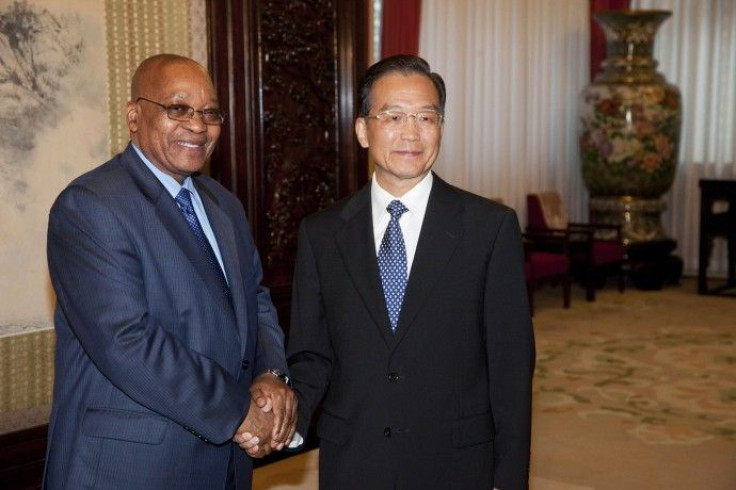Does South Africa deserve to join BRIC?

South Korea, among other countries, would be a better candidate than South Africa to join the BRIC group of prominent emerging market nations, said Jim O’Neill, chairman of Goldman Sachs Asset Management, and the man who first coined the “BRIC” term.
O’Neill’s comments come after reports in Chinese state media that China has invited South Africa to join a BRIC economic summit next year, perhaps as a prelude to full membership.
The China Daily article reported that “Chinese Foreign Minister Yang Jiechi Thursday said BRIC has accepted South Africa as a full member of the group, which currently includes Brazil, Russia, India and China. Yang, during a phone conversation with his South African counterpart Maite Nkoana-Mashabane, said Chinese President Hu Jintao would issue an invitation letter to South African President Jacob Zuma, inviting him to attend the third BRIC leaders’ meeting to be held in Beijing next year.”
Jacob Zuma, South Africa’s president, has long hinted that he would like his country to join BRIC, most likely to improve the country’s image in the eyes of foreign investors and portfolio managers.
The China Daily report further stated: “Yang said that China, as the current rotating chair of BRIC, believes South Africa’s accession will promote the development of BRIC and enhance the cooperation of emerging market economies.”
O’Neill is not so sure that South Africa deserves to be mentioned in the same breath as the BRIC behemoths.
In a note to clients, O’Neill wrote: “While this is clearly good news for South Africa, it is not entirely obvious to me as to why the BRIC countries should have agreed” to ask South Africa to join.
“When I created the acronym, I had not expected that a political club of the leaders of the BRIC countries would be formed as a result. In that regard, the purposes of the two might be regarded differently,” he added.
He cited that South Korea, Indonesia, Mexico and Turkey are all “growth economies” since they each account for about 1 percent of global GDP.
Indeed, according to data from the International Monetary Fund, as of 2009, South Korea’s economy is valued at $833-billion, Turkey is at $729-billion and Mexico, $875-billion. By comparison, South Africa’s GDP totals only $287-billion.
“It is tough to see how South Africa matches up to these four countries, never mind the BRIC countries,” O’Neill said.
The smallest of the BRIC economies, Russia, has an economy valued at $1.23-trillion, four times the size of South Africa’s.
O’Neill also indicated that based on Goldman Sachs Growth Environment Scores, which gauges countries by their sustainable growth and productivity, South Africa is ranked 108th out of 181 economies, with a score of 4.88. South Korea’s score is 7.48, which is higher than economic superpowers U.S. and Germany.
Indeed, Goldman Sachs has identified 11 emerging markets nations -- Bangladesh, Egypt, Indonesia, Iran, Korea, Mexico, Nigeria, Pakistan, Philippines, Turkey and Vietnam – which have the economic potential to one day match the performance of the BRIC countries.
“If South Africa is going to be invited to be a permanent member of the BRIC political club, it suggests others might then decide to apply,” O’Neill said. “Certainly, their economic circumstances and prospects would warrant it if South Africa’s do.”
© Copyright IBTimes 2024. All rights reserved.











